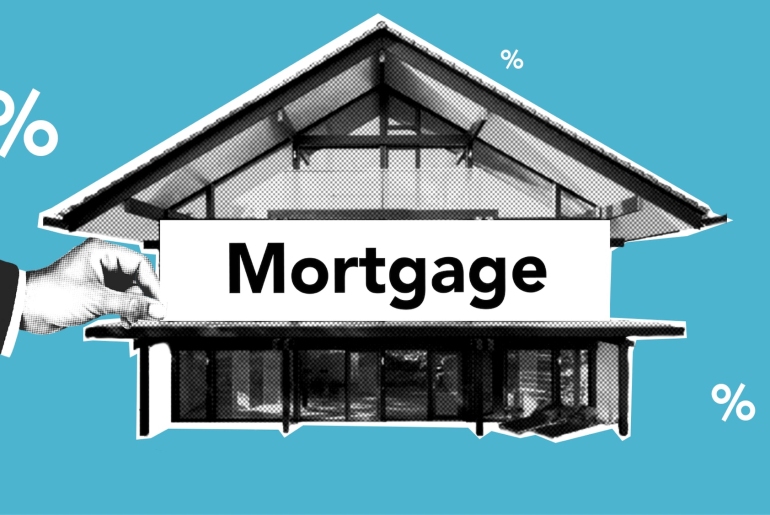This article may contain references to products or services from one or more of our advertisers or partners. We may receive compensation when you click on links to those products or services. Nonetheless, our opinions are our own.
Stepping into the realm of real estate to sell your home is a monumental financial decision, often underpinned by emotional ties, future aspirations, and pragmatic considerations. Unsurprisingly, making a slight error can cost thousands of dollars. Fortunately, you can seamlessly navigate the real estate waters with due diligence and financial foresight. But how?
1. The Art of Pricing: Not Too High, Not Too Low
According to Investopedia, overpricing can be a real estate faux pas. To substantiate, a Zillow study found that homes priced exorbitantly sold for an average of 10% less than their listed price. On the flip side, pricing it right based on market research can fetch the right buyers and secure an optimal return on your investment. Remember, research plays a vital role. As The Balance indicates, understanding your locality’s prevailing real estate trends can save you from costly miscalculations.
2. Presentation Matters: Stage It Right
First impressions are lasting, more so in real estate. Not having your home in its best attire can be a costly oversight. Data from the National Association of Realtors highlighted by Investopedia indicates that staged homes fetch about 7% more than their unstaged counterparts. A pristine, directed, and well-maintained home appeals to the emotional quotient of the buyer, often leading to quicker and more profitable sales. As the saying goes, “buy before you sell“; when investing in staging, consider it an advance purchase towards ensuring a lucrative deal.
3. Timing and Transparency:
The Twin Pillars of Selling Realtor.com raises a pertinent point about market timing. Homes sold within the first 90 days of listing witness a spike of around 5% in their selling price compared to those lingering longer. Thus, catching the market when it’s hot is crucial. Furthermore, transparency must be balanced. It’s ethical and legal to disclose known issues like a problematic roof or foundation cracks. Concealing them can backfire, leading to legal complications and a tainted reputation.
4. Engage Professionals and Be Prepared
Engaging a seasoned real estate agent is more of an investment than an expense. Their market understanding, negotiation prowess, and expansive network, as suggested by Investopedia, can often fetch you the best bang for your buck. Moreover, always have a plan B. As HG.org puts forth, a contingency plan can be a savior if the sale lingers, be it renting or holding onto the property longer. And patience is the name of the game in real estate. Homes don’t sell overnight; mistakes might occur, but the key is to learn and adapt.
Securing optimal returns from your home sale is an intricate dance of strategy, patience, and preparation. As highlighted by Forbes Advisor, an average seller garners a profit of 5.5%, a figure that can swing based on market nuances and home conditions. To stay on the profitable side of this statistic, remember to price it right, stage it well, sell timely, be transparent, and lean on professionals. And most importantly, as with all ventures, learn and evolve. After all, your home isn’t just an asset; it’s a repository of memories and deserves the best exit.

Reviewed and edited by Albert Fang.
See a typo or want to suggest an edit/revision to the content? Use the contact us form to provide feedback.
At FangWallet, we value editorial integrity and open collaboration in curating quality content for readers to enjoy. Much appreciated for the assist.
Did you like our article and find it insightful? We encourage sharing the article link with family and friends to benefit as well - better yet, sharing on social media. Thank you for the support! 🍉
Article Title: Financial Foresight: How to Dodge Home Selling Mistakes and Secure Optimal Returns
https://fangwallet.com/2023/09/12/financial-foresight-how-to-dodge-home-selling-mistakes-and-secure-optimal-returns/The FangWallet Promise
FangWallet is an editorially independent resource - founded on breaking down challenging financial concepts for anyone to understand since 2014. While we adhere to editorial integrity, note that this post may contain references to products from our partners.
The FangWallet promise is always to have your best interest in mind and be transparent and honest about the financial picture.
Become an Insider

Subscribe to get a free daily budget planner printable to help get your money on track!
Make passive money the right way. No spam.
Editorial Disclaimer: The editorial content on this page is not provided by any of the companies mentioned. The opinions expressed here are the author's alone.
The content of this website is for informational purposes only and does not represent investment advice, or an offer or solicitation to buy or sell any security, investment, or product. Investors are encouraged to do their own due diligence, and, if necessary, consult professional advising before making any investment decisions. Investing involves a high degree of risk, and financial losses may occur including the potential loss of principal.
Source Citation References:
+ Inspo












































